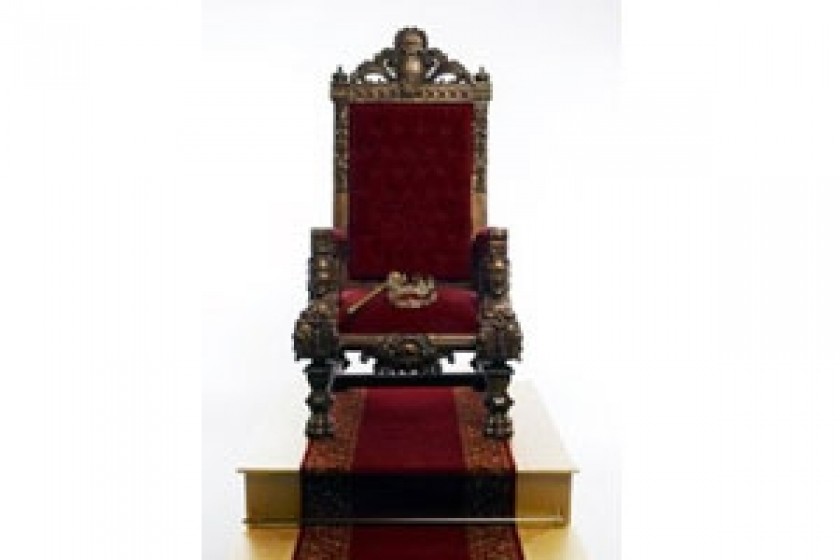
A Story of Replication
Part I – The Journey to Division
Everything would be different if Robert Kocharyan had the right to propose his candidacy for a third time. He would be the only candidate the current authorities would put forward and the problem of replication of power would not be as acute as it currently is. Kocharyan does not have the legal right to run for president this time and going against the Constitution would not be a safe thing to do. But it is also not safe to let go of power through elections. One has to maintain the status quo.
Kocharyan's problem is not in choosing a successor. Serzh Sargsyan has always been seen as the one who would follow him. The problem is in correctly organizing the process of replication so as to maintain things the way they are but also ensure that the West accept the elections as fair.
Serzh Sargsyan, as a government official and politician, cannot secure fifty one percent of the votes in a way which would both maintain the status quo and at the same time be fair. Both Kocharyan and Sargsyan are well aware of this, as are the people in their inner circle. They have therefore started using a technique in the upper echelons since last year which one could call “strengthening through division”.
This technique would see power divided in such a way as to cover the whole political field, leaving no place for the opposition who have long since lost their influence and resources. Kocharyan would then come forth with two candidates at the same time – his faithful ally Serzh Sargsyan on one side and another trusted politician on the other, one who was ready to lose with dignity and congratulate Serzh Sargsyan, accepting him as the rightful president.
The favorites for the second role were two politicians who did not have close ties with the Republican Party, but were close to the president – Vardan Oskanyan and Davit Harutyunyan. Prosecutor General Aghvan Hovsepyan also saw himself in this second role and, having guessed the likely script for this process of replication, tried to establish his reputation as a man of the people by organizing a dance for hundreds of thousands of Armenians around Mt. Aragats, as well as conducting tree-planting drives.
The Prosperous Armenia project, although technically faultless, had many shortcomings in its content, due to a faulty assessment of the situation and the people. Prosperous Armenia's active campaigning and its unimpressive result in the election showed that the electoral masses outside of the Republican Party's reach favor radical change and cannot be tricked.
On the other hand, the rapid and artificial growth of Prosperous Armenia, whether they wanted it or not, posed a serious threat to the Republican Party. Those voters who were within the influence of the Republican Party – mainly officials of varying stature and position – were confused to see another presidential power grow so strong. But remaining powerful is more important to the Republicans than any plan that Kocharyan may have for replication of power. “All we need is health, we can take the rest ourselves,” is the credo of the Republicans.
The rapid and artificial growth of Prosperous Armenia was probably personally distasteful to Serzh Sargsyan as well. He may like the idea of shutting others out of power by dividing it, but fears that Kocharyan may end up playing a game between two successors whom he favors and the West approves, wherein both could secure the process of replication. For example, if Vardan Oskanyan were truly better than Serzh Sargsyan, then Kocharyan could end up giving him preference, returning to his old ally the portfolio of Defense Minister. Moreover, taking into consideration the fact that Kocharyan is unwilling to be the youngest pensioner in the country, it might suit him to have a weaker and more dependent person elected, with himself in the role of prime minister under this new president, thus keeping the role of number one, under the new powers given by the Constitution.
Taking these risks into consideration, Serzh Sargsyan rejected the technique of division before the parliamentary elections. That was clearly obvious from the results of the voting. If he were to use the Prosperous Armenia project in the future, he would have allowed a “better result” to be registered for them. The proportion of seats in the Parliament would not have changed, but Prosperous Armenia would not have ended up looking silly by getting only half the number of votes as their declared number of members.
Now Prosperous Armenia has announced that they will naturally support the candidate of their coalition for the upcoming presidential elections, but the ARF, who is de jure part of the coalition butde facto suffers the pains of being in opposition, has offered their support to Robert Kocharyan, so that they can keep their modest but profitable spot under the sun for the next ten years as well.
ARF's participation in the 2008 elections will be nothing more than a PR exercise in self-assertion, because the support role will not be important in these elections. The outgoing president and his successor have decided to cover the whole political field, leaving no place for the “suspicious and doubtful”.
In these hot summer days, when there is no social or political activity, when journalists and editors vacation in Armenian or foreign resorts, one of the main oppositionists – Artashes Geghamyan – has put forward the idea of a single candidate representing both the authorities and the opposition, which is yet another option for the occupation of the political field.
 Videos
Videos Photos
Photos
Write a comment